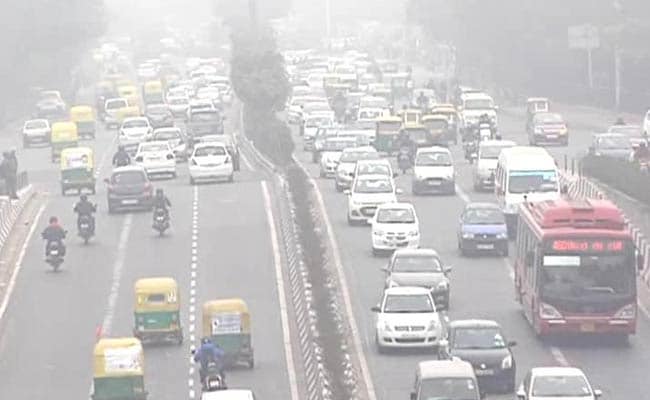
The level of air pollution in Delhi exceeds the limits prescribed by the World Health Organisation (WHO), government said in Rajya Sabha today.
The air quality monitoring data for Delhi provided by Central Pollution Control Board indicates that the levels of particulate matter (PM2.5) exceed the WHO guidelines by a "factor of 7 to 12", Environment Minister Prakash Javadekar said.
WHO published Air Quality Guidelines for Europe in 1987 and 2000. A global update was brought out in 2005 by WHO. India took into account the norms while revisiting and notifying the National Ambient Air Quality Standards (NAAQS), comprising 12 pollutants.
The Minister said "the data of air quality monitored by the Greenpeace in five schools of Delhi are exceeding and are in similar range". He, however, did not name the schools.
Mr Javadekar, while replying to questions, said Delhi government has come out with a long term and short term measures last month so as to improve ambient air quality in the capital.
"The Ministry of Environment, Forest and Climate Change has asked for a time targeted implementation plan by March 31, 2015," he said.
The Minister further said a comprehensive air quality index would be launched and monitoring stations will be set up on 66 cities having population of 10 lakh or more.
He said government has taken various measures to contain air pollution in the country, including supply of cleaner fuels, stringent source specific emission standards for air polluting industries and implementation of revised emission norms for gensets and cement plants.
To another question, Mr Javadekar said the details were yet to be finalised by his ministry on acceptance of the TSR Subramanian Committee recommendation for enactment of a new umbrella law 'Environment Laws (Management) Act.
At the same time, he added that every recommendation of may not be accepted by the government.
The minister also said that as per a survey conducted by the OECD in 2007 'Ranking Port Cities with High Exposure and Vulnerability to Climate Extremes', which assumes a mean sea-level rise of 0.5 meter by 2070, Kolkata is identified as "amongst the cities most vulnerable" to the rising sea level and storm surges.
Track Latest News Live on NDTV.com and get news updates from India and around the world

